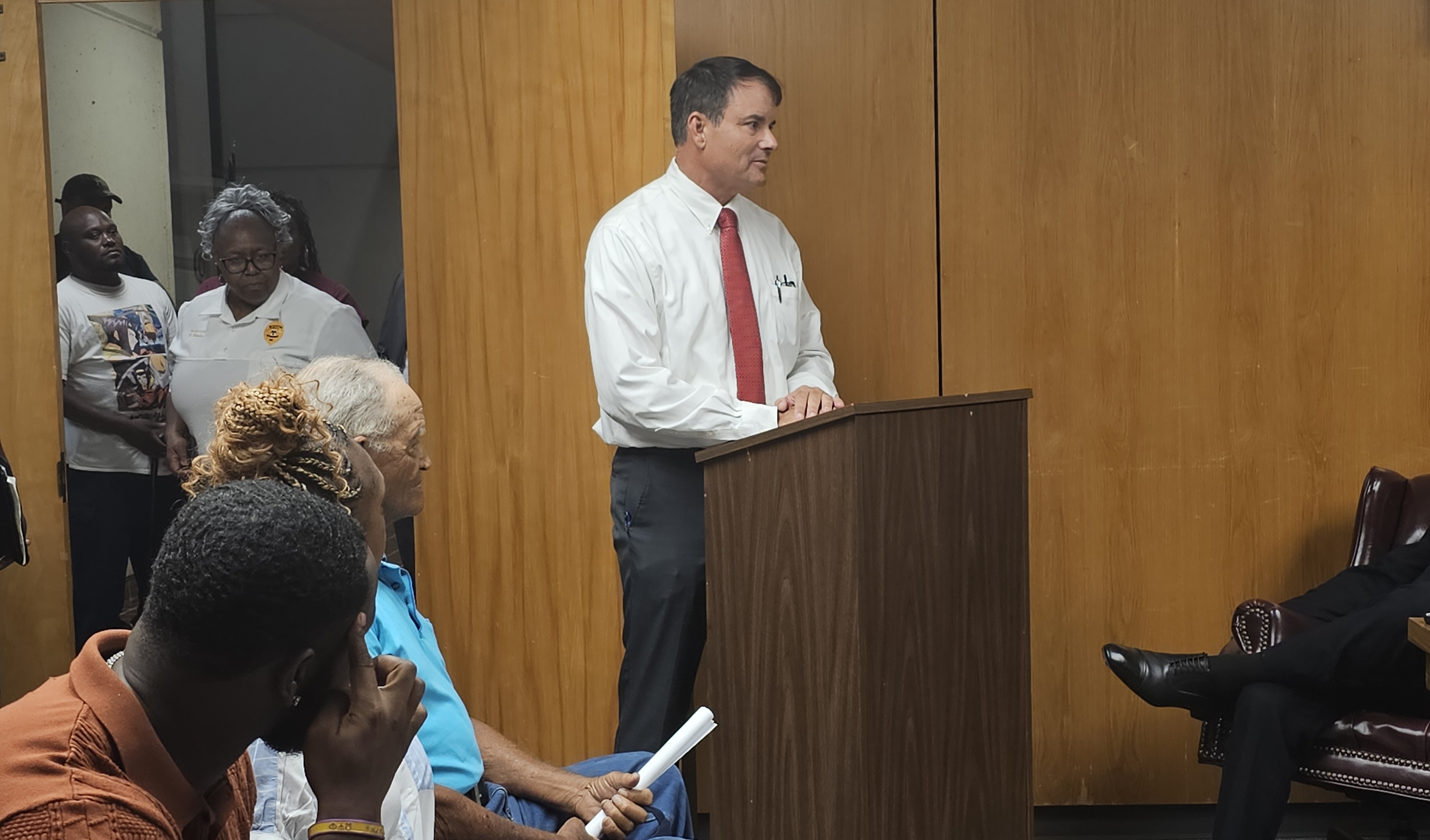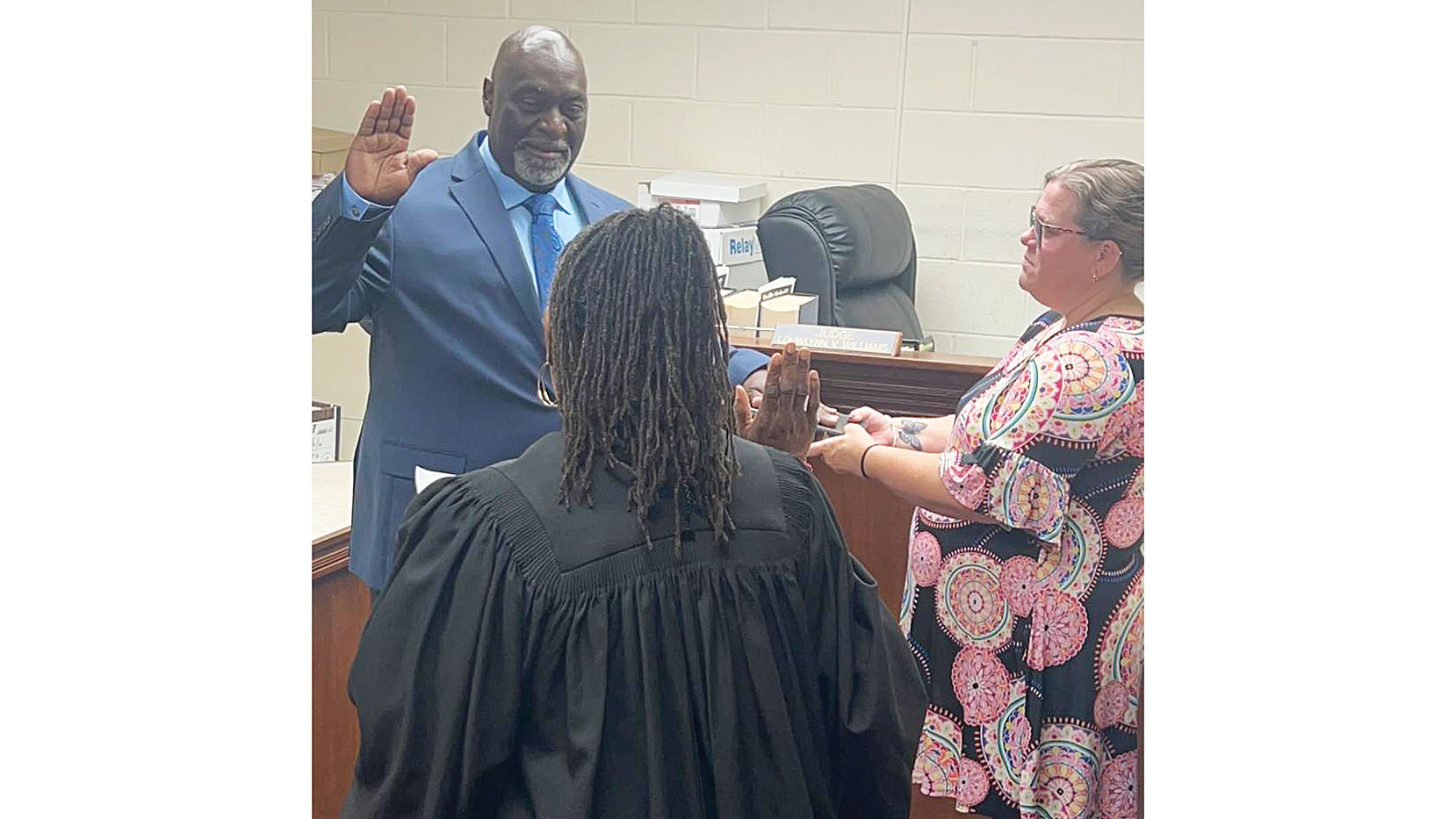On the road to rural storm sirens
Published 11:08 pm Wednesday, February 27, 2013
Friday’s top story on The Daily Leader sports page didn’t lead with a score or a team mascot name. No, the first words of Sports Editor Tom Goetz’s article about the Wolves’ and Lady Wolves’ basketball victories were, “Weather warning sirens wailed loudly across the Co-Lin campus Thursday night …”
The Co-Lin warning beacon is part of multi-siren system in Copiah County, Randle Drane, Copiah County civil defense director, told me.
Besides the Co-Lin/Wesson siren, Drane said the system includes a siren in Gallman, two in Hazlehurst, “four or five” in Crystal Springs, one in Georgetown, and another that he expected to be installed in Beauregard by the end of last week.
Co-Lin also utilizes its Wolf Alert system to send out text messages in the event of hazardous weather or other emergency situations, so the campus is doubly warned.
Around the same time Thursday night that the crowd in the Co-Lin gym was vacating the stands, over in Jefferson Davis County, the editor of The Prentiss Headlight, The Daily Leader’s sister newspaper, was at home taking shelter from the storm as well.
In the quiet ahead of the storm, she said she heard the distant blare of a weather siren located between five and six miles away. Despite the distance involved in that feat of sound, I have to say that Karen Sanford, The Prentiss editor, is not given to unnecessary exaggeration. Perhaps the winter-stark condition of the forests had something to do with the sound waves’ surprising reach.
Jeff Davis County’s sirens paid off Thursday night, when an EF-2 tornado touched down in the Green Creek community between Carson and Bassfield. Despite the power of that storm, which tore roofs off houses and left massive trees uprooted, no injuries were reported.
Copiah and Jefferson Davis counties aren’t alone in having storm sirens in South Mississippi. In fact, rural sirens have become somewhat of the norm.
Franklin County civil defense director Mark Thornton said his county has three sirens – one in Roxie, one in Bude and another in Meadville.
Lawrence has seven sirens spread throughout the county, a spokesman at the central fire department told me last week.
The city of Brookhaven hopes to add sirens soon, thanks to a federal program that pays for much of the cost, but Lincoln County hasn’t been able to qualify for the program so far, and to date, the county is without sirens.
The government money comes through the Federal Emergency Management Agency’s Hazard Mitigation Grant Program, which will cover 75 percent of the cost of weather sirens. In order to qualify for the funds, though, the city or county must meet certain requirements, including participation in the National Flood Insurance Program, according to FEMA’s website.
Brookhaven meets that requirement, since it has taken part in the flood insurance program since 1977, and the city has sought and obtained funds to cover about $111,000 of the total estimated cost of $117,600 for putting in five sirens inside the city limits.
Aldermen expect to open bids on the sirens in April, and Mayor Les Bumgarner hopes to see them installed before he retires from office later this year.
Meanwhile, in the part of Lincoln County outside the city, FEMA mitigation money is not available, since the county is not in the flood insurance program. The county’s application for the insurance program was rejected last year, and the matter has been under advisement by the board of supervisors since then.
The Flood Insurance Program comes with many requirements, such as mapping and building codes. In my hometown, Columbus, much of the city sits within the 100-year flood plain, and that once-in-a-lifetime flood level came twice in the 1970s, putting most of the town under water and leaving the city with ample reason to jump through the necessary hoops to obtain compliance with the federal program.
But as a former homeowner in the designated 100-year flood plain whose house never actually flooded (my untouched original wood floors attested to that), I know flood insurance doesn’t come cheap. That required expense for flood-zone homes is in addition to a regular homeowner’s policy.
Back in Lincoln County, the city of Brookhaven hopes to have its sirens in the near future. But for the time being, all of us in the county – unless we live close enough to a county line to hear one of the neighboring sirens – would be well served to take personal initiative and buy a weather radio.
Rachel Eide is editor/general manager of The Daily Leader. Contact her at rachel.eide@dailyleader.com.





